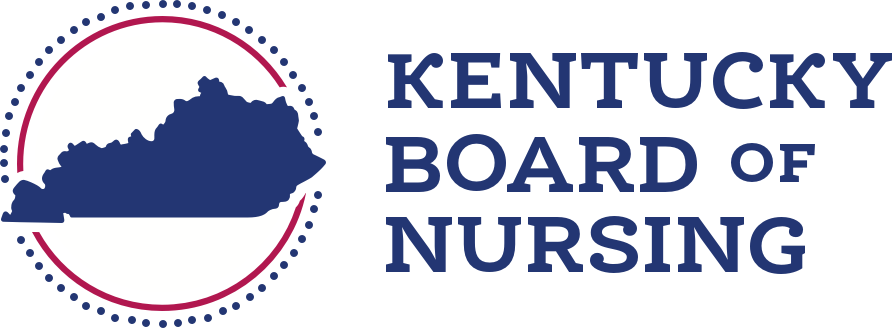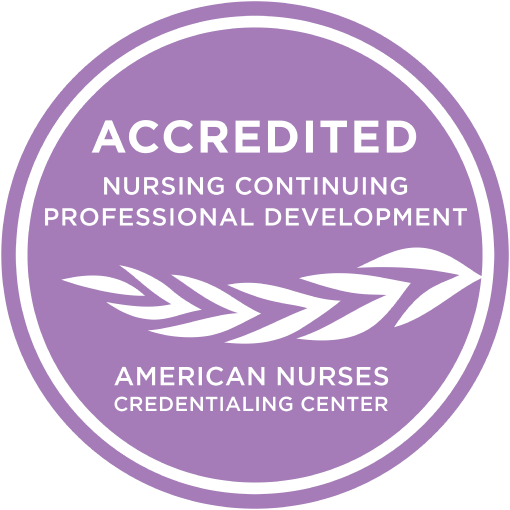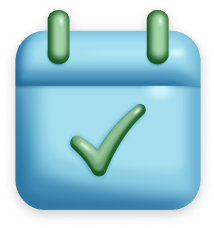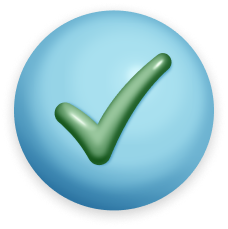Kentucky Nursing CEU License Renewal Package
- Approved Kentucky Board of Nursing (KBN) CE provider. Provider # 7-0090
- Instant access to all courses, including the Kentucky Renewal Bundle and all state-required courses.
- Includes Alzheimer's Disease and Other Forms of Dementia course, now required for license renewal
- 100% Online. No tests. Immediate certificates.
- Instantly reports to CE Broker Automatically – No Waiting.
- Approved Kentucky Board of Nursing (KBN) CE provider. Provider # 7-0090
- Instant access to all courses, including the Kentucky Renewal Bundle and all state-required courses.
- Includes Alzheimer's Disease and Other Forms of Dementia course, now required for license renewal
- 100% Online. No tests. Immediate certificates.
- Instantly reports to CE Broker Automatically – No Waiting.
- Approved Kentucky Board of Nursing (KBN) CE provider. Provider # 7-0090
- Instant access to all courses, including the Kentucky Renewal Bundle and all state-required courses.
- Includes Alzheimer's Disease and Other Forms of Dementia course, now required for license renewal
- 100% Online. No tests. Immediate certificates.
- Instantly reports to CE Broker Automatically – No Waiting.
Your Kentucky Courses And Requirements
Pick your license type to see your license renewal requirements and our courses that satisfy those requirements. Your enrollment includes all state required courses.

Nursing CE Central has all the courses, for each license level, required by Kentucky.
Kentucky
Requirements
RNs have the option to complete 14 contact hours of continuing education every year or meet one of the other continuing competency options listed here in Section 3.
Mandatory CE requirements:
- 3 of the 14 contact hours must be on Domestic Violence (one-time requirement)
- 1.5 of the 14 contact hours must be on Pediatric Abusive Head Trauma (one-time requirement)
- 1 of the contact hours must be on Alzheimer's and other forms of dementia (one-time requirement)
- 2 of the 14 contact hours must be on Suicide Prevention (one-time requirement)
- 1 contact hour in suicide prevention generally; and
- 1 contact hour that addresses:
- Chronic toxic stress and secondary traumatic stress potentially increasing the incidence of suicide amongst nurses;
- A confidential and standardized pathway to care for nurses that addresses
screening, assessing, safety planning, referrals, and follow-up for
nurses at risk for suicide; - Systems of care, evidence-informed approaches, and best practices to reduce suicide rates; and
- Ethical legal considerations for caring for patients and nurses who are suicidal.
- 1.5 of the 14 contact hours must be on Implicit Bias (one-time requirement) that addresses:
- The impact of historical racism and other forms of invidious discrimination on the provision of healthcare;
- Methods of evaluating the presence and extent of implicit bias; and
- Measures that may be taken to reduce implicit bias.
- 5 of the 14 contact hours must be on Sexual Assault, Forensic Medicine,
or Domestic Violence if you are a Sexual Assault Nurse Examiner (SANE)
Courses That Match Requirements
Contact Hours
Kentucky Renewal Bundle Course Outline
- Pediatric Abusive Head Trauma – Kentucky (Meets Kentucky BON Requirement)
- Kentucky Implicit Bias (Meets Kentucky BON Requirement)
- Kentucky Suicide Prevention (Meets Kentucky BON Requirement)
- Kentucky Domestic Violence (Meets Kentucky BON Requirement)
- Ostomy Management
- Diabetes Management: Nursing Updates
- Hospice Vs. Palliative Care: What’s the difference?
- Navigating Difficult End of Life Conversations
- Basic Ventilator Management
Kentucky Pediatric Abusive Head Trauma Course Outline
- Introduction and Objectives
- Epidemiology/Risk Factors
- Pathophysiology
- Diagnosis of Abusive Head Trauma
- Outcomes and Sequelae
- Legal Consideration in the State of Kentucky
- Prevention
- Conclusion
Kentucky Domestic Violence Course Outline
- Introduction
- What is Domestic Violence?
- Etiology and Pathophysiology
- The Cycle of Abuse Model
- Those at Risk
- Assessing for Domestic Violence
- The History Assessment
- The Physical Assessment
- Effects of Domestic Violence
- Statistics and Prevalence of Domestic Violence
- What Can Nurses Do?
- Resources
- Conclusion
Kentucky Implicit Bias Training Course Outline
- Introduction
- What is Implicit Bias?
- Implications
- Impact of Historic Racism
- Exploring Areas of Bias
– Culture
– Maternal Health
– Reproductive Rights - Case Study
- How to Measure and Reduce Implicit Bias in Healthcare
– Assessing for Bias
– Acting to Reduce Bias
Kentucky SANE Guidelines for Adult/Adolescent Populations Course Outline
- Introduction
- Overview of Forensic Nursing
- Sexual Violence against Adults/Adolescents
– Definitions
– Prevalence and Statistics
– Long-Term Effects
– The Sexual Assault Response Team
– Key Aspects of Sexual Assault Care - Health History, Observation, and Assessment
– Importance of consent and autonomy
– Physical Assessment
– Equitment
– Medical forensic health history
– Toxicology
– Special populations
– Mental health assessment - Specimen Collection
– Evidence kit requirements and basic principles
– DNA analysis
– Clothing evidence
– Swab Collection - Medical Forensic Photography
– Basics
– Photography technique
– Photography equipment - STD testing and Prophylaxis
– Basic recommendations
– Symptoms
– Testing
– Treatment - Pregnancy Risk Evaluation and Care
– Testing
– Treatment - Documentation
– Required Documentation - Discharge and Follow-Up
– Education
– Follow-Up and Safety - Conclusion
Kentucky Suicide Prevention Course Outline
- Introduction
- The Significance of Suicide Prevention
- Suicide Risk Factors Amongst the Nursing Population
- Strategies to Address Suicide Risks
- Additional Interventions and Protective Factors to Reduce Suicide Rates
- Ethical and Legal Considerations Regarding Care for Suicidal Individuals
- Case Study
- Recommendations
Kentucky SANE Guidelines for Pediatric/Adolescent Populations Course Outline
- Introduction
- Overview of Forensic Nursing
- Sexual Violence against Pediatrics
- Health History, Observation and Assessment
- Specimen Collection
- Medical Forensic Photography
- STD testing and Prophylaxis
- Pregnancy Risk Evaluation and Care
- Documentation
- Discharge and follow up.
- Conclusion
Kentucky Alzheimer's and Dementia Review Course Outline
- Introduction
- Warning Signs and Symptoms of Alzheimer’s Disease and Other Dementias
- Importance of Early Detection, Diagnosis, and Communication for Memory Concerns
- Cognitive Assessment and Care Planning Billing Codes
- Screening and Billing for Cognitive Assessment
- Tools for Assessing a Patient’s Cognition
- Documentation Requirements
- Background and Introduction to CPT® Code 99483
- Current Treatments Available to the Patient
- Other Management Strategies in Alzheimer’s Disease
- Conclusion
Requirements
LPNs have the option to complete 14 contact hours of continuing education every year or meet one of the other continuing competency options listed here
Mandatory CE requirements:
- 3 of the 14 contact hours must be on Domestic Violence (one-time requirement)
- 1.5 of the 14 contact hours must be on Pediatric Abusive Head Trauma (one-time requirement)
- 1 of the contact hours must be on Alzheimer's and other forms of dementia (one-time requirement)
- 2 of the 14 contact hours must be on Suicide Prevention (one-time requirement)
- 1 contact hour in suicide prevention generally; and
- 1 contact hour that addresses:
- Chronic toxic stress and secondary traumatic stress potentially increasing the incidence of suicide amongst nurses;
- A confidential and standardized pathway to care for nurses that addresses
screening, assessing, safety planning, referrals, and follow-up for
nurses at risk for suicide; - Systems of care, evidence-informed approaches, and best practices to reduce suicide rates; and
- Ethical legal considerations for caring for patients and nurses who are suicidal.
- 1.5 of the 14 contact hours must be on Implicit Bias (one-time requirement) that addresses:
- The impact of historical racism and other forms of invidious discrimination on the provision of healthcare;
- Methods of evaluating the presence and extent of implicit bias; and
- Measures that may be taken to reduce implicit bias.
Courses That Match Requirements
Contact Hours
Kentucky Renewal Bundle Course Outline
- Pediatric Abusive Head Trauma – Kentucky (Meets Kentucky BON Requirement)
- Kentucky Implicit Bias (Meets Kentucky BON Requirement)
- Kentucky Suicide Prevention (Meets Kentucky BON Requirement)
- Kentucky Domestic Violence (Meets Kentucky BON Requirement)
- Ostomy Management
- Diabetes Management: Nursing Updates
- Hospice Vs. Palliative Care: What’s the difference?
- Navigating Difficult End of Life Conversations
- Basic Ventilator Management
Kentucky Pediatric Abusive Head Trauma Course Outline
- Introduction and Objectives
- Epidemiology/Risk Factors
- Pathophysiology
- Diagnosis of Abusive Head Trauma
- Outcomes and Sequelae
- Legal Consideration in the State of Kentucky
- Prevention
- Conclusion
Kentucky Domestic Violence Course Outline
- Introduction
- What is Domestic Violence?
- Etiology and Pathophysiology
- The Cycle of Abuse Model
- Those at Risk
- Assessing for Domestic Violence
- The History Assessment
- The Physical Assessment
- Effects of Domestic Violence
- Statistics and Prevalence of Domestic Violence
- What Can Nurses Do?
- Resources
- Conclusion
Kentucky Implicit Bias Training Course Outline
- Introduction
- What is Implicit Bias?
- Implications
- Impact of Historic Racism
- Exploring Areas of Bias
– Culture
– Maternal Health
– Reproductive Rights - Case Study
- How to Measure and Reduce Implicit Bias in Healthcare
– Assessing for Bias
– Acting to Reduce Bias
Kentucky SANE Guidelines for Adult/Adolescent Populations Course Outline
- Introduction
- Overview of Forensic Nursing
- Sexual Violence against Adults/Adolescents
– Definitions
– Prevalence and Statistics
– Long-Term Effects
– The Sexual Assault Response Team
– Key Aspects of Sexual Assault Care - Health History, Observation, and Assessment
– Importance of consent and autonomy
– Physical Assessment
– Equitment
– Medical forensic health history
– Toxicology
– Special populations
– Mental health assessment - Specimen Collection
– Evidence kit requirements and basic principles
– DNA analysis
– Clothing evidence
– Swab Collection - Medical Forensic Photography
– Basics
– Photography technique
– Photography equipment - STD testing and Prophylaxis
– Basic recommendations
– Symptoms
– Testing
– Treatment - Pregnancy Risk Evaluation and Care
– Testing
– Treatment - Documentation
– Required Documentation - Discharge and Follow-Up
– Education
– Follow-Up and Safety - Conclusion
Kentucky Suicide Prevention Course Outline
- Introduction
- The Significance of Suicide Prevention
- Suicide Risk Factors Amongst the Nursing Population
- Strategies to Address Suicide Risks
- Additional Interventions and Protective Factors to Reduce Suicide Rates
- Ethical and Legal Considerations Regarding Care for Suicidal Individuals
- Case Study
- Recommendations
Kentucky SANE Guidelines for Pediatric/Adolescent Populations Course Outline
- Introduction
- Overview of Forensic Nursing
- Sexual Violence against Pediatrics
- Health History, Observation and Assessment
- Specimen Collection
- Medical Forensic Photography
- STD testing and Prophylaxis
- Pregnancy Risk Evaluation and Care
- Documentation
- Discharge and follow up.
- Conclusion
Kentucky Alzheimer's and Dementia Review Course Outline
- Introduction
- Warning Signs and Symptoms of Alzheimer’s Disease and Other Dementias
- Importance of Early Detection, Diagnosis, and Communication for Memory Concerns
- Cognitive Assessment and Care Planning Billing Codes
- Screening and Billing for Cognitive Assessment
- Tools for Assessing a Patient’s Cognition
- Documentation Requirements
- Background and Introduction to CPT® Code 99483
- Current Treatments Available to the Patient
- Other Management Strategies in Alzheimer’s Disease
- Conclusion
Requirements
APRNs have the option to complete 14 contact hours of general continuing education every year or maintain their national certification.
Mandatory CE requirements:
- 3 of the 14 contact hours must be on Domestic Violence (one-time requirement)
- 1.5 of the 14 contact hours must be on Pediatric Abusive Head Trauma (one-time requirement)
- 1 of the contact hours must be on Alzheimer's and other forms of dementia (one-time requirement)
- 2 contact hours must be on Suicide Prevention (one-time requirement) in addition to annual CE requirements
- 1.5 contact hours must be on Implicit Bias (one-time requirement) in addition to annual CE requirements
- 5 of the 14 contact hours must be on Sexual Assault, Forensic Medicine,
or Domestic Violence if you are a Sexual Assault Nurse Examiner (SANE) - APRNs may use their board certification to satisfy the 14 contact hours needed for RN license renewal.
- APRNs applying for initial authority to prescribe medical cannabis will need 6 contact hours in the subject for approval (one-time requirement)
- APRNs renewing medical cannabis prescribing authority will need 3 contact hours.
- Requirements for continuing education in medical cannabis go into effect January 1st 2025
- APRNs are required to complete 5 contact hours of continuing education on pharmacology every year.
- APRNs with prescriptive authority are required to complete 5 contact hours of continuing education on pharmacology every year.
- 1.5 of the 5 contact hours must be in the dual subject of pharmacology
and addiction disorders AND 2.5 contact hours on addiction disorders
for APRNs with CAPA-CS who have a waiver and registration issued by the DEA. - 1.5 of the 5 contact hours must be in the dual subject of pharmacology and addiction disorders for APRNs with CAPA-CS who do not have a waiver and registration issued by the DEA.
- 1.5 of the 5 contact hours must be in the dual subject of pharmacology
- APRNs with prescriptive authority are required to complete 5 contact hours of continuing education on pharmacology every year.
Special Conditions
- If you graduated in Kentucky after 1998 the domestic violence course was included in your curriculum. Your one-time requirement has been met.
- If you graduated in Kentucky after 2011 the pediatric abusive head trauma course was included in your curriculum. Your one-time requirement has been met.
Courses That Match Requirements
Contact Hours
Kentucky APRN Bundle Course Outline
- Kentucky Addiction Disorders
- Kentucky Pharmacology and Addiction Disorders
- SSRI Use in Major Depressive Disorder
Kentucky Pediatric Abusive Head Trauma Course Outline
- Introduction and Objectives
- Epidemiology/Risk Factors
- Pathophysiology
- Diagnosis of Abusive Head Trauma
- Outcomes and Sequelae
- Legal Consideration in the State of Kentucky
- Prevention
- Conclusion
Kentucky Pharmacology and Addiction Disorders Course Outline
- Introduction
- Understanding Kentucky Addiction Disorders
- Opioid-Related Laws and Prescribing Regulations for APRNs in Kentucky
- Basic Pharmacology of Opioids
- Medication-Assisted Treatment (MAT)
- Buprenorphine
- Definition
- Drug Class
- Uses
- Mechanism of Action
- Side Effects
- Warnings
- Naltrexone
- Definition
- Drug Class
- Uses
- Mechanism of Action
- Side Effects
- Warnings
- Treatment Resources
- Conclusion
Kentucky Addiction Disorders Course Outline
- Introduction
- Etiology / Statistics on Addiction Disorders in Kentucky
- Opioid Use Disorder
- Overview of Opioids
- Fentanyl
- Definition
- Drug Class
- Uses
- Mechanism of Action
- Side Effects
- Warnings
- Medication-Assisted Treatment (MAT)
- Methadone
- Definition
- Drug Class
- Uses
- Mechanism of Action
- Side Effects
- Warnings
- Guidance for Kentucky APRNs
- Prescription Drug Monitoring Programs (PDMPs)
- State Requirements
- Prescribing Guidelines, Laws, and Regulations for Clinicians in Kentucky
- Conclusion
Kentucky Pharmacology of Medical Cannabis Course Outline
- Introduction
- Kentucky Prescribing Law
- Overview and Definition
- Clinical Application and Use
- Pharmacokinetics
- Definition
- Drug Class
- Uses
- Mechanism of Action
- Side effects
- Warnings
- Alternatives
- Cannabis Use Disorder
- Nursing Considerations / Follow Up
- Upcoming Research and Legislation
- Conclusion
Kentucky Medical Cannabis Laws and Prescribing for APRNs Course Outline
- Introduction
- History of Medical Cannabis Legalization
- How to Become a Medical Cannabis Practitioner
- Prescribing Medicinal Cannabis
- Establishing a Practitioner-Patient Relationship
- Using the Right Form
- Obtaining a Medical History and Performing a Physical Exam
- Performing Diagnostic Tests If Needed
- Diagnosing Qualifying Medical Conditions
- Providing Education and Obtaining Consent
- Including a Statement
- Documentation, Follow Up, and Keeping Records
- Prescribing Renewals
- Role Limitations
- Law Violations and Consequences
- Treating Qualifying Medical Conditions with Medicinal Cannabis
- Cancer
- Chronic Pain
- Epilepsy
- Multiple Sclerosis and/or Spasticity
- Chronic Nausea and Vomiting
- Post-Traumatic Stress Disorder
- Conclusion
It’s Easy With Nursing CE Central
You already work long and stressful hours, getting your CEU certificates shouldn’t add to that. Once you enroll with Nursing CE Central, getting your certificates are just a few clicks away.
"As a nurse myself I know how hard it can be to get the CEUs you need to renew. That's why I built Nursing CE Central - to help nurses reduce the stress of license renewal. I guarantee that you'll love our easy-to-use platform and courses. Thank you so much for considering our CE website and have a blessed day."
EnrollTrusted By Your Fellow Nurses
We are proud to help countless nurses in Kentucky and all across the country. You don’t have to take our word for it, see what your colleagues have to say.
Very easy instructions to follow no stre...
Quick uncomplicated easy to read and comprehend. Very interesting subjects. I am a 10 year breast cancer survivor myself and Type 2 diabetic. I learned things nurses should definitely be aware of in this changing world of ours. There were stories you shared that I could...
The topics were informative and easy to…...
The topics were informative and easy to follow. They were interesting and gave you a chance to answer questions. Just enough topics to meet license renewal.
Wonderful Bundle Course
Wonderful Bundle Course! Easy to understand, Great review with updated information.Highly recommend this, wish I would have found this sooner.
Answers For Your Questions
The last thing you want is your time wasted with a confusing service, our Knowledge Base has you covered. If you have any questions, reach out to our Customer Support Team via email: [email protected]
What’s included in my enrollment?
Enrollment
What’s the cost of enrollment?
When you choose Nursing CE Central for your continuing education experience, you'll make a payment of $49.99, which grants you unlimited access to all of our RN and LPN/LVN level courses for an entire year.
If you already have RN and LPN/LVN access, you have the option to upgrade your membership to access our APRN level courses for an additional cost. Not already enrolled in Nursing CE Central? You can make a payment of $149 for access to our entire course library, which includes: APRN, LPN/LVN, and RN courses. To do this, select APRN from the license level dropdown in the Requirements section of this page.
This means you can take as many courses as you need to renew your license, and you have the freedom to take even more courses to further expand your knowledge.
You can save time and money in future years by signing up for automatic renewal at the time of original purchase. Automatic renewal grants you extended access yearly for $41.99 per year after the first year.
What does my payment include?
Your payment of $49.99 includes unlimited access to all of Nursing CE Central's RN and LPN/LVN course offerings for an entire year.
If you already have RN and LPN/LVN access, you have the option to upgrade your membership to access our APRN level courses for an additional cost. Not already enrolled in Nursing CE Central? You can make a payment of $149 for access to our entire course library, which includes: APRN, LPN/LVN, and RN courses. To do this, select APRN from the license level dropdown in the Requirements section of this page.
This means you can take as many courses as you need to renew your license, and you have the freedom to take even more courses to further expand your knowledge
Nursing CE Central's comprehensive library includes nearly all state-required courses for RNs and LPN/LVNs in all 50 states. Nursing CE Central's library covers a wide variety of topics that are applicable to a variety of nursing professions! These topics include courses regarding:
State Requirements
Nurse Leadership
Pediatrics
Labor & Delivery
Mental Health
Substance Abuse
Infectious Disease
Cardiac
Emergency
ICU
Oncology
Operative
Trauma
Stroke/Neuro
Wound Care
Hospice/Palliative Care
For more information, click the link below to view our course library: https://nursingcecentral.com/view-courses/
Do you offer course booklets?
Nursing CE Central is a paperless office, so we do not have paper booklets or catalogues for our courses.
All of Nursing CE Central's course offerings are 100% online. However, all of our course materials and completed certificates can be printed from our site, at your own convenience.
Nursing CE Central strives to foster a user-friendly continuing education experience that is simple and effective for your renewal. Our course-flow makes earning a certificate seamless:
Just read and learn, complete a brief survey, and click to complete your courses!
Full access to our RN and LPN/LVN level courses is included in your purchase of $49.99, allowing you to take as many courses as you would like during your year of access.
If you already have RN and LPN/LVN access, you have the option to upgrade your membership to access our APRN level courses for an additional cost. Not already enrolled in Nursing CE Central? You can make a payment of $149 for access to our entire course library, which includes: APRN, LPN/LVN, and RN courses. To do this, select APRN from the license level dropdown in the Requirements section of this page.
Here is a link to view our course library: https://nursingcecentral.com/view-courses/
NCC Course Library
What course topics are included?
Nursing CE Central's library covers a wide variety of topics that are applicable to a variety of nursing professions! These topics include courses regarding:
State Requirements
Nurse Leadership
Pediatrics
Labor & Delivery
Mental Health
Substance Abuse
Infectious Disease
Cardiac
Emergency
ICU
Oncology
Operative
Trauma
Stroke/Neuro
Wound Care
Hospice/Palliative Care
For more information, click the link below to view our course library: https://nursingcecentral.com/view-courses/
Nursing CE Central accredited?
Nursing CE Central is accredited by the American Nurses Credentialing Center (ANCC), and our courses are accepted in all 50 states!
Our ANCC Provider Number is: P0164
If you have further questions about our courses being accepted by your state Board of Nursing, please search for your state here!
Auto-Renewal
How does the automatic renewal work?
When you sign up for automatic renewal with Nursing CE Central, you'll receive unlimited access to all of our course offerings in your original purchase at a discounted rate of 15% off each year after your first year of purchase. Staying enrolled in automatic renewal will save you time and money each year as you complete your CE requirements.
You may cancel automatic renewal at any time & for any reason by contacting our customer support team. You can reach our support team through email at [email protected] or through our Help Center on our website.
Here is the link to our help center: https://nursingcecentral.com/help/
Do I have to sign up for automatic renewal?
No, automatic renewal is not required, it's an optional perk!
When you sign up for automatic renewal, you'll receive unlimited access to all of our course offerings in your original purchase at a discounted rate of 15% off each year after the first. Staying enrolled in automatic renewal will save you time and money each year as you complete your CE requirements.
You may cancel automatic renewal at any time & for any reason by contacting our Customer Support Team.
Payment
What payment options do you support?
Nursing CE Central accepts all major debit and credit providers, Google and Apple Pay, and PayPal, too.
If you're ready to purchase, please do so here: Enroll
Course Reporting
Do you report my courses for me?
If you are licensed in a CE Broker state, Nursing CE Central will send your course completions directly to CE Broker so that you don't have to. CE Broker then automatically reports your courses to your BON.
CE Broker States are as follows: Arkansas, Florida, South Carolina, Washington, DC, West Virginia, New Mexico, Georgia, Kentucky, Michigan, Mississippi, Kansas, Wyoming, North Dakota.
If you're licensed in a state that does not utilize CE Broker, it is your responsibility to report your courses to your board of nursing. For clarity on how to best report to your board of nursing, contact them directly.
What are Kentucky's State CE Requirements?
Licensed Practical Nurses
- LPNs are required to complete 14 contact hours of continuing education every year.
- 3 of the 14 contact hours must be on Domestic Violence (one-time requirement)
- 1.5 of the 14 contact hours must be on Pediatric Abusive Head Trauma (one-time requirement)
- 2 of the 14 contact hours must be on Suicide Prevention (one-time requirement)
- 1 contact hour on Alzheimer's and other forms of dementia (one-time requirement)
- 1 contact hour in suicide prevention generally; and
- 1 contact hour that addresses:
- Chronic toxic stress and secondary traumatic stress potentially increasing the incidence of suicide amongst nurses;
- A confidential and standardized pathway to care for nurses that addresses screening, assessing, safety planning, referrals, and follow-up for nurses at risk for suicide;
- Systems of care, evidence-informed approaches, and best practices to reduce suicide rates; and
- Ethical legal considerations for caring for patients and nurses who are suicidal.
- 1.5 of the 14 contact hours must be on Implicit Bias (one-time requirement) that addresses:
- The impact of historical racism and other forms of invidious discrimination on the provision of healthcare;
- Methods of evaluating the presence and extent of implicit bias; and
- Measures that may be taken to reduce implicit bias.
Registered Nurses
- RNs are required to complete 14 contact hours of continuing education every year.
- 3 of the 14 contact hours must be on Domestic Violence (one-time requirement)
- 1.5 of the 14 contact hours must be on Pediatric Abusive Head Trauma (one-time requirement)
- 5 of the 14 contact hours must be on Sexual Assault, Forensic Medicine, or Domestic Violence if you are a Sexual Assault Nurse Examiner (SANE)
- 2 of the 14 contact hours must be on Suicide Prevention (one-time requirement)
- 1 contact hour on Alzheimer's and other forms of dementia (one-time requirement)
- 1 contact hour in suicide prevention generally; and
- 1 contact hour that addresses:
- Chronic toxic stress and secondary traumatic stress potentially increasing the incidence of suicide amongst nurses;
- A confidential and standardized pathway to care for nurses that addresses screening, assessing, safety planning, referrals, and follow-up for nurses at risk for suicide;
- Systems of care, evidence-informed approaches, and best practices to reduce suicide rates; and
- Ethical legal considerations for caring for patients and nurses who are suicidal.
- 1.5 of the 14 contact hours must be on Implicit Bias (one-time requirement) that addresses:
- The impact of historical racism and other forms of invidious discrimination on the provision of healthcare;
- Methods of evaluating the presence and extent of implicit bias; and
- Measures that may be taken to reduce implicit bias.
Advanced Practice Registered Nurses
- APRNs have the option to complete 14 contact hours of general continuing education every year or maintain their national certification.
- Mandatory CE requirements:
- 3 of the 14 contact hours must be on Domestic Violence (one-time requirement)
- 1.5 of the 14 contact hours must be on Pediatric Abusive Head Trauma (one-time requirement)
- 2 contact hours must be on Suicide Prevention (one-time requirement) in addition to annual CE requirements
- 1.5 contact hours must be on Implicit Bias (one-time requirement) in addition to annual CE requirements
- 1 contact hour on Alzheimer's and other forms of dementia (one-time requirement)
- 5 of the 14 contact hours must be on Sexual Assault, Forensic Medicine, or Domestic Violence if you are a Sexual Assault Nurse Examiner (SANE)
- APRNs may use their board certification to satisfy the 14 contact hours needed for RN license renewal as long as certification was initially attained during the licensure period, OR certification has been in effect during the entire licensure period, OR certification has been renewed during the licensure period.
- APRNs are required to complete 5 contact hours of continuing education on pharmacology every year.
- APRNs with prescriptive authority are required to complete 5 contact hours of continuing education on pharmacology every year.
- 1.5 of the 5 contact hours must be in the dual subject of pharmacology and addiction disorders AND 2.5 contact hours on addiction disorders for APRNs with CAPA-CS who have a waiver and registration issued by the DEA.
- 1.5 of the 5 contact hours must be in the dual subject of pharmacology and addiction disorders for APRNs with CAPA-CS who do not have a waiver and registration issued by the DEA
- APRNs who had a DEA-X registration to prescribe buprenorphine must complete a total of 4 contact hours in addictions disorders.
- 1.5 contact hours must be in the dual subject of pharmacology and addiction disorders.
Are the courses accepted in Kentucky?
Nursing CE Central is an accredited continuing education provider in Kentucky!
We are accredited by the American Nurses Credentialing Center (ANCC) as well as directly by the Kentucky Board of Nursing.
Our ANCC Provider Number is: P0164
Our Kentucky BON Provider Number is: 7-0090
Your payment of $49.99 includes unlimited access to all of Nursing CE Central's course offerings for an entire year. This means you can take as many courses as you need to renew your license in Kentucky, and you have the freedom to take even more courses to further expand your knowledge.
How do I complete my CE’s after payment?
Your Courses
In order to access your courses with Nursing CE Central, you must first be logged in. After you enroll, you will automatically be logged in and taken to your dashboard, where you can then pick any course in our library.
Your enrollment provides you with unlimited access to our entire course library for one year, so you can take as many courses as you need to renew your license.
Completing Courses
Once you are logged in, you will automatically be taken to your dashboard, where you can then pick any course in our library.
To find out more about a course, you may click the "Course information" button under each respective course.
When you are ready to begin taking courses, all you need to do is click the "Start now" button under the course you would like to take!
In order to mark a Nursing CE Central course as complete, you must first ensure that you are logged in, then go to the course, scroll all the way to the bottom, below the survey, and click the big, green button that says "Click Here to Mark Complete".
Once you have completed the course, your certificate will automatically be emailed to the email address you have on file. You can also access all of your certificates at any time from the "My Certificates" tab on our website.
You must be logged in to see the green button that says “Click Here to Mark Complete” and to see the “My Certificates” tab.
Certificates
After you log in, you can access all of your certificates at any time from the "My Certificates" tab on our website!
Once you have completed any course with Nursing CE Central, your certificate will automatically be emailed to the email address you have on file.
Unfortunately we do not have paper or mail-in certificates available. However all of your certificates can be downloaded and printed from our website at your own convenience.
Accessing Your Account
You can login by clicking the blue "login" option in the top right corner of Nursing CE Central's website.
In general, your Nursing CE Central login information is:
- Username: the email you signed up with at time of registration
- Password: the password you chose at the time of registration.
The Fastest And Easiest Way To Get Your CEU’s
Don’t bring the stress home with you. With Nursing CE Central, you’ll be able to maximize your time outside of work to do what you enjoy.









